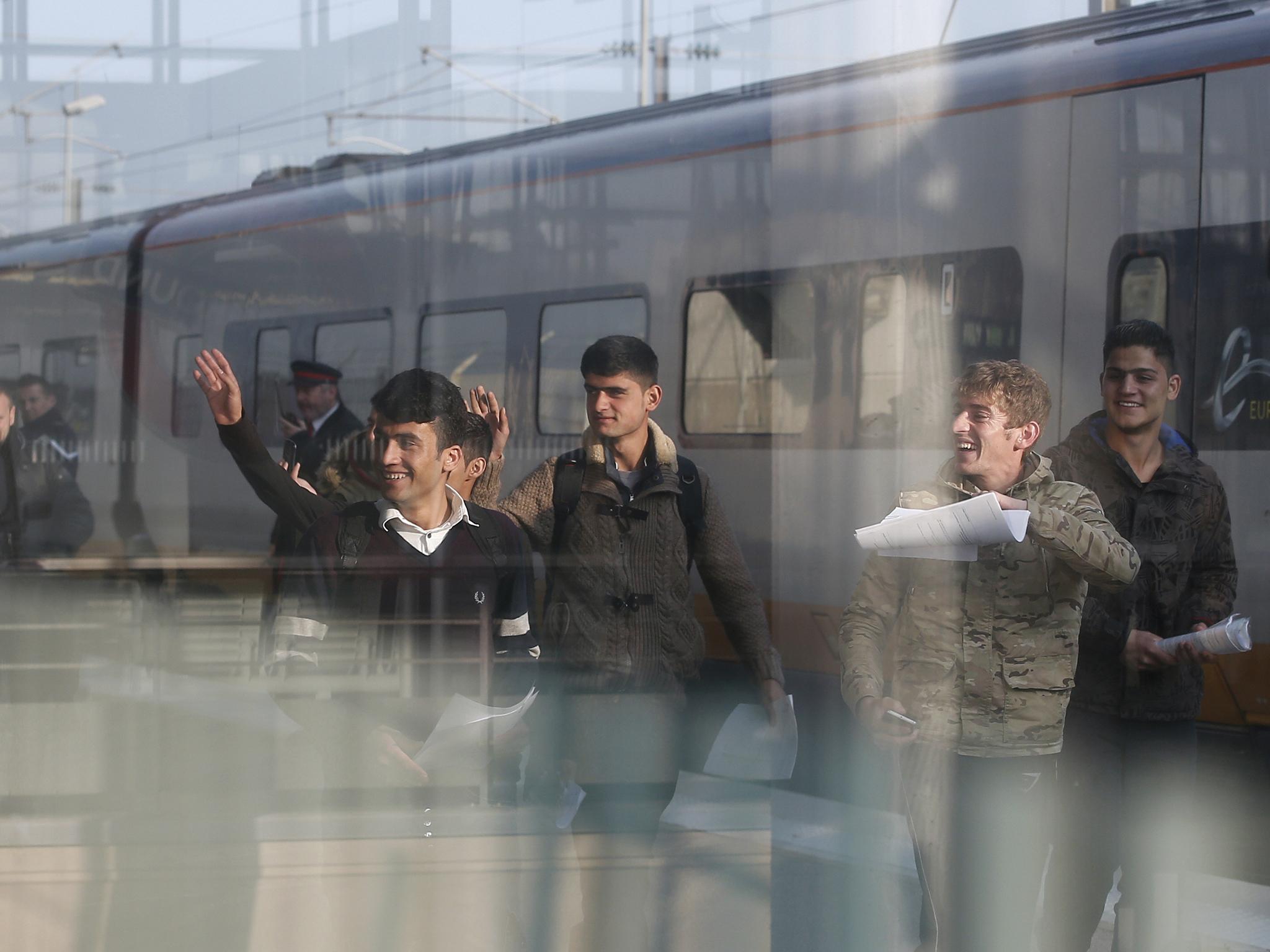First Calais Jungle children with no UK links arrive in Britain
The unaccompanied children are being let in under an Immigration Act amendment proposed by Lord Dubs, who came to Britain as a child refugee from Nazi Germany

Your support helps us to tell the story
From reproductive rights to climate change to Big Tech, The Independent is on the ground when the story is developing. Whether it's investigating the financials of Elon Musk's pro-Trump PAC or producing our latest documentary, 'The A Word', which shines a light on the American women fighting for reproductive rights, we know how important it is to parse out the facts from the messaging.
At such a critical moment in US history, we need reporters on the ground. Your donation allows us to keep sending journalists to speak to both sides of the story.
The Independent is trusted by Americans across the entire political spectrum. And unlike many other quality news outlets, we choose not to lock Americans out of our reporting and analysis with paywalls. We believe quality journalism should be available to everyone, paid for by those who can afford it.
Your support makes all the difference.The first group of unaccompanied children who do not have links to Britain have arrived in the UK from the Calais Jungle refugee camp.
They were among the latest wave of some 70 new young arrivals to cross the English Channel under the landmark Dubs amendment.
The Immigration Act amendment, proposed by Lord Dubs, who himself came to Britain as a child refugee from Nazi-occupied Czechoslovakia under the Kindertransport scheme, means the UK must accept some unaccompanied child refugees who do not have ties to the country.
Previously all the young refugees who have arrived in Britain have been brought under the Dublin regulations, which require the children to have family resident in the UK.
Some of those who arrived under the Dublin regulations provoked controversy because of suggestions that some appeared to look much older than teenagers. Critics alleged they were in fact adults masquerading as children to gain unfair entry into the UK.
Screens have since been used to keep the refugees hidden from public view after they arrive at a Home Office building in Croydon, south London.
The Dubs amendment children arrived hours after about 50 people marched through the Kent coastal town of Margate in a ‘White Lives Matter’ protest organised by a far-right group. Anti-racist groups staged a counter-protest, and police made two arrests for suspected public order and obstruction offences.
Welcoming news of the Dubs amendment arrivals, Bishop Jonathan Clark, spokesman for Citizens UK, a charity supporting the refugees, said: "It's great to see the Government acting on what Citizens UK have been calling for, and transferring these children to Britain.”
The arrivals under the Dubs amendment, he said, included: “The most vulnerable, including many young girls.”
He added: "Of course this is just a very small proportion of the unaccompanied children out there and less than one per cent of the total number of people in the Calais camp now, the vast majority of whom will be claiming asylum in France as they should."
The latest arrivals came as demolition teams prepare to move into the Jungle on Monday to clear the estimated 6,500 inhabitants, who will be relocated to reception centres across France.
Dover Conservative MP Charlie Elphicke said the camp must never be allowed to re-emerge.
He said: "The Jungle must be fully dismantled – never to return. This time they need to see it through. We must end the Calais migrant magnet."
British aid volunteers, however, have warned that new unofficial refugee camps may spring up to replace the Calais Jungle once it is demolished. Care4Calais founder Clare Moseley has told The Independent that it is likely refugees will return to the Calais area to live in camps with even worse conditions than those in the Jungle.
“The idea of dispersing these refugees has been tried before," she said, referring to when a section of the Jungle camp was dismantled in February. “They said that was going to be a deterrent, but of course it wasn’t.”
Within months of February’s partial demolition of the Jungle, the number of refugees in Calais had grown to far exceed what it was before.
Join our commenting forum
Join thought-provoking conversations, follow other Independent readers and see their replies
Comments